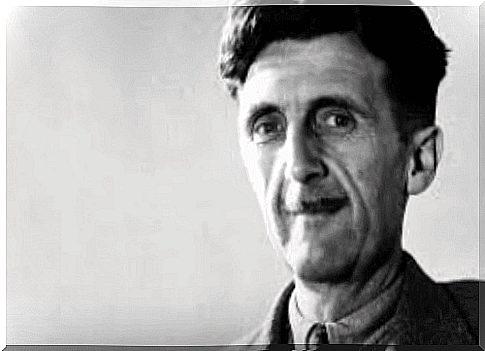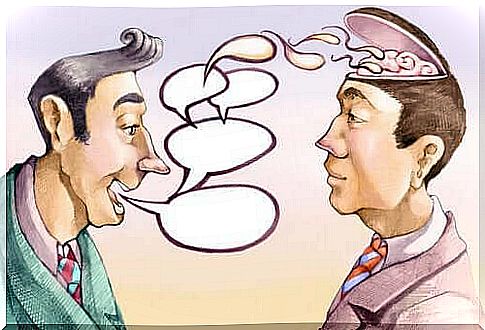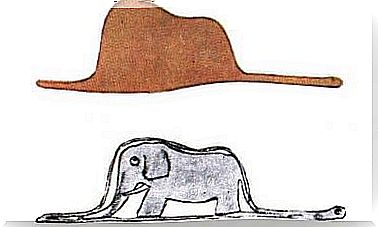George Orwell: Language Manipulation And Totalitarianisms

George Orwell was an English novelist, essayist and journalist whose novels Animal Farm and 1984 entered the annals of literature. His work, based on personal experiences, is divided into three parts: the struggle against British imperialism, support for democratic socialism and the final struggle against Nazi and Stalinist totalitarianisms.
Orwell is one of the most important essayists of the 1940s. His most important texts focus mainly on the dangers of totalitarianism. Deeply affected by the Spanish Civil War, in which he participated to fight fascism, and by his experience during World War II, George Orwell wrote against totalitarian systems and the dangers of war.
The 1984 novel contains all of George Orwell’s conclusions on totalitarian societies. The world he recreates in this novel inspired the Orwellian term used to refer to these societies. In it he addresses concepts such as language manipulation, mind control and the abuse of power. Through the dystopia, the writer has managed to map out a terrifying future that we would never want to get to.

Early life of George Orwell
George Orwell is actually the pseudonym of Eric Arthur Blair, born in Motihari, India, in 1903. His father was a British administration official in India.
Eric was sent with his mother to England at an early age, where he would be educated in the best schools. In fact, he obtained scholarships for both Wellington and Eton.
In the latter school, the young George Orwell established friendships that would later be useful for his first publications. After completing his studies in Eton, he returned to India and joined the imperial police in Burma, where he remained for five years. During this period, he had serious health problems and began to develop a deep rejection against imperialism.
George Orwell and the war
After leaving Burma, Orwell returned to England and began publishing some of his writings. He devoted himself to teaching, but for some time he also worked in a bookshop, although his main occupation was that of a writer.
Later, he moved to live with his aunt in France in hopes of solidifying his writing career, but the French period was only a disappointment. Returning to England in 1933, he decided to adopt the pseudonym of George Orwell for his novels. In 1936, he went to Spain to fight against fascism in the Spanish Civil War.
Although some friends, such as Hemingway, tried to dissuade him, he arrived in Barcelona towards the end of the same year. An idealist to the core, he fought on the Huesca front, where he was seriously wounded in the throat by an enemy shot.
His participation in the Spanish Civil War would forever change his worldview. Upon returning from the Iberian country, he had to be hospitalized in a sanatorium for a severe form of tuberculosis.
Later, he joined the Home Guard during World War II. His experiences and reflections of those years can all be found in the work Diary of War. He also worked for the BBC, in programs aimed at gaining Allied military support from East Asian countries.
Shortly before his death, he married Sonia Brownell. George Orwell died on January 21, 1950 of tuberculosis that forced him to stay on a hospital bed for the last three years of his life.
Totalitarianisms and the corruption of language
George Orwell firmly believed that totalitarianism and the corruption of language were interrelated. He claimed that language in politics distorts all concepts and events, giving them other forms.
His 1984 work contains important reflections in support of these ideas. One of these concerns how language can be modified in its structure to completely block any thoughts of disobedience or rebellion. Similarly, the manipulation of language is used in politics as a massive campaign of psychological manipulation.
He wrote in depth on the “bipensiero”, or on the ability to simultaneously support two contradictory ideas. In the 1984 novel , this cognitive dissonance is used for concepts like the Ministry of Peace, which is actually dealing with war, or the Ministry of Abundance, which manages economic scarcity.

For George Orwell, language structures human thought and is therefore of vital importance. When the control of language comes under the power of a political agency, it can be restructured in such a way that no one can question the absolute power of government, which is totalitarianism.
Conclusions
In some cases, literature and other art forms such as cinema have the ability to convey important messages to the population. In this sense, the dystopian genre lends itself particularly to these reflections.
The vision of a dark future, but one that recalls the present, makes one more inclined to adopt a critical and objective gaze towards reality. How can we change things? What can we do to avoid getting to that point?
Orwell is without a doubt a master of the genre and has given us one of the best dystopian works ever written: 1984 .









